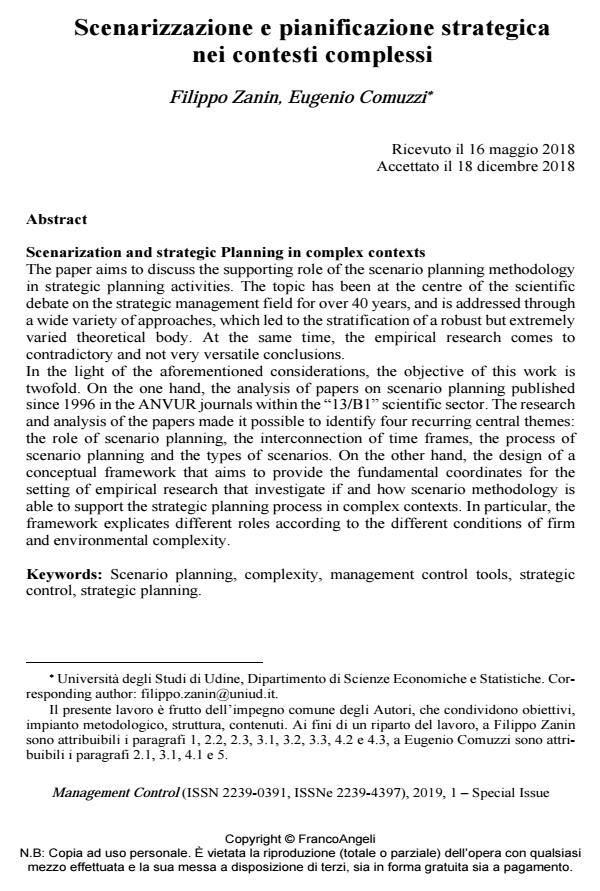Scenarization and strategic Planning in complex contexts
Journal title MANAGEMENT CONTROL
Author/s Filippo Zanin, Eugenio Comuzzi
Publishing Year 2019 Issue 2019/1 suppl.
Language Italian Pages 26 P. 95-120 File size 281 KB
DOI 10.3280/MACO2019-SU1006
DOI is like a bar code for intellectual property: to have more infomation
click here
Below, you can see the article first page
If you want to buy this article in PDF format, you can do it, following the instructions to buy download credits

FrancoAngeli is member of Publishers International Linking Association, Inc (PILA), a not-for-profit association which run the CrossRef service enabling links to and from online scholarly content.
The paper aims to discuss the supporting role of the scenario planning methodology in strategic planning activities. The topic has been at the centre of the scientific debate on the strategic management field for over 40 years, and is addressed through a wide variety of approaches, which led to the stratification of a robust but extremely varied theoretical body. At the same time, the empirical research comes to contradictory and not very versatile conclusions. In the light of the aforementioned considerations, the objective of this work is twofold. On the one hand, the analysis of papers on scenario planning published since 1996 in the ANVUR journals within the "13/B1"scientific sector. The research and analysis of the papers made it possible to identify four recurring central themes: the role of scenario planning, the interconnection of time frames, the process of scenario planning and the types of scenarios. On the other hand, the design of a conceptual framework that aims to provide the fundamental coordinates for the setting of empirical research that investigate if and how scenario methodology is able to support the strategic planning process in complex contexts. In particular, the framework explicates different roles according to the different conditions of firm and environmental complexity.
Keywords: Scenario planning, complexity, management control tools, strategic control, strategic planning.
Filippo Zanin, Eugenio Comuzzi, Scenarizzazione e pianificazione strategica nei contesti complessi in "MANAGEMENT CONTROL" 1 suppl./2019, pp 95-120, DOI: 10.3280/MACO2019-SU1006